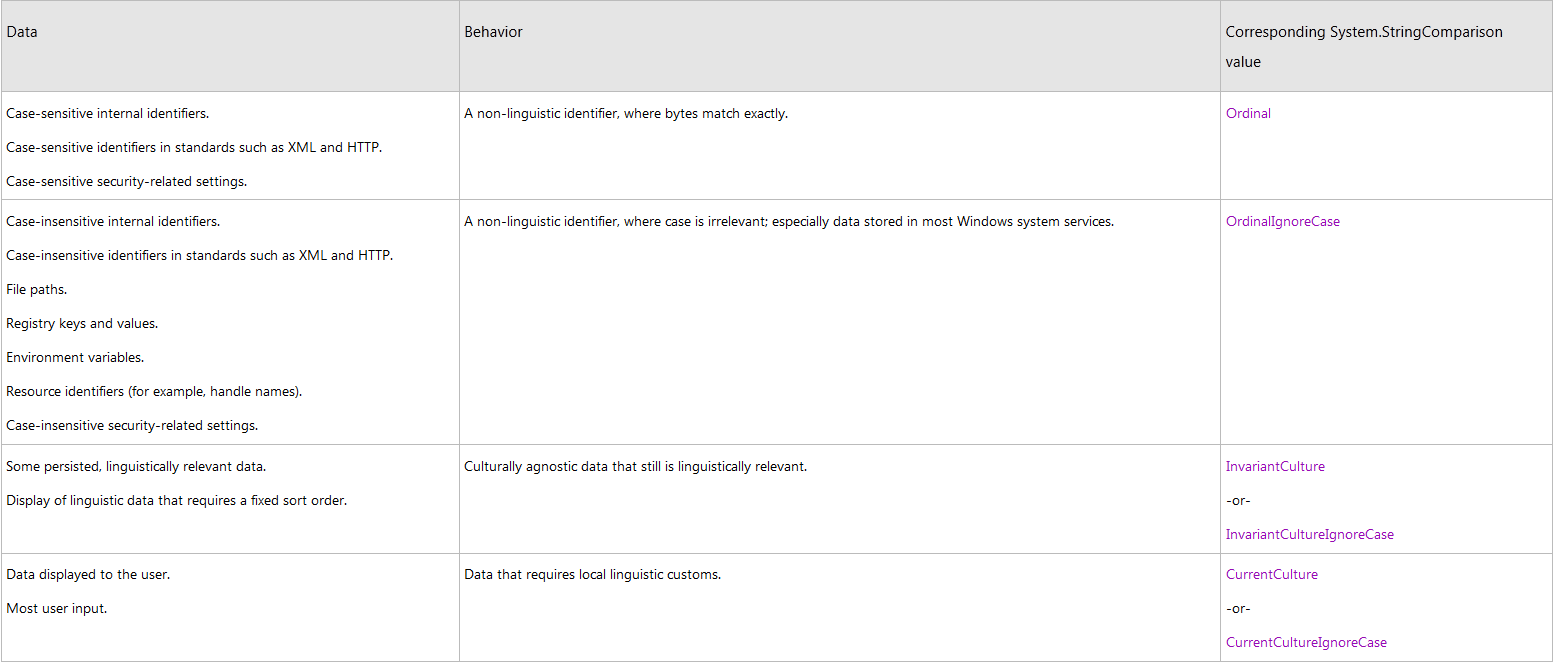C# string.indexof(string)返回1!!!
Contents
下面的代码第一次indexof返回0,第二次indexof返回1。
1 | const string softHyphenPlusHyphen = "\xAD\x2D"; |
Best Practices for Using Strings in the .NET Framework讲了如何在.net中正确的使用字符串。摘要如下:
When you develop with the .NET Framework, follow these simple recommendations when you use strings:
- Use overloads that explicitly specify the string comparison rules for string operations. Typically, this involves calling a method overload that has a parameter of type StringComparison.
- Use StringComparison.Ordinal or StringComparison.OrdinalIgnoreCase for comparisons as your safe default for culture-agnostic string matching.
- Use comparisons with StringComparison.Ordinal or StringComparison.OrdinalIgnoreCase for better performance.
- Use string operations that are based on StringComparison.CurrentCulture when you display output to the user.
- Use the non-linguistic StringComparison.Ordinal or StringComparison.OrdinalIgnoreCase values instead of string operations based on CultureInfo.InvariantCulture when the comparison is linguistically irrelevant (symbolic, for example).
- Use the String.ToUpperInvariant method instead of the String.ToLowerInvariant method when you normalize strings for comparison.
- Use an overload of the String.Equals method to test whether two strings are equal.
- Use the String.Compare and String.CompareTo methods to sort strings, not to check for equality.
- Use culture-sensitive formatting to display non-string data, such as numbers and dates, in a user interface. Use formatting with the invariant culture to persist non-string data in string form.
- Avoid the following practices when you use strings:
- Do not use overloads that do not explicitly or implicitly specify the string comparison rules for string operations.
- Do not use string operations based on StringComparison.InvariantCulture in most cases. One of the few exceptions is when you are persisting linguistically meaningful but culturally agnostic data.
- Do not use an overload of the String.Compare or CompareTo method and test for a return value of zero to determine whether two strings are equal.
- Do not use culture-sensitive formatting to persist numeric data or date and time data in string form.
下表是如何选择StringComparison:


